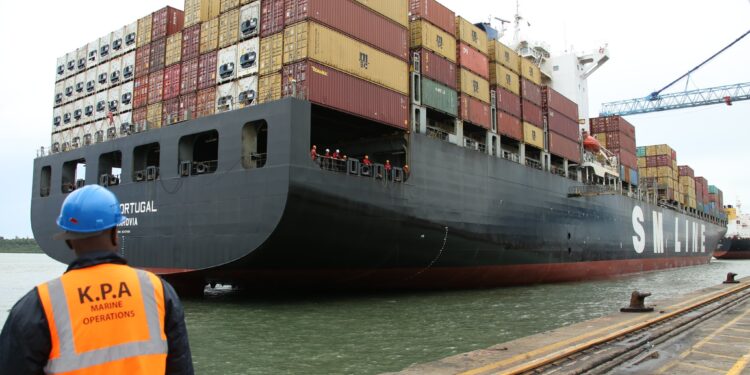Kenya has posted impressive gains in international trade and external financial stability, signaling renewed investor confidence and improved competitiveness in the global marketplace. According to the Economic Survey 2025 released by the Kenya National Bureau of Statistics (KNBS), the country’s total merchandise trade rose by 5.5 percent to Sh3.82 trillion in 2024, up from Sh3.62 trillion the previous year. The growth is widely attributed to prudent fiscal management and a conducive environment fostered by government policies.
A major highlight of the report is the 10.4 percent surge in export earnings, which reached Sh1.11 trillion. The growth was significantly boosted by a 77.3 percent spike in re-exports, while domestic exports also registered a modest 2.9 percent rise. These figures point to Kenya’s strengthening export base and expanding access to international markets, thanks in part to trade agreements, streamlined customs procedures, and targeted support to export-oriented industries.
At the same time, imports grew by a slower 3.6 percent, helping Kenya narrow its merchandise trade deficit slightly—from Sh1.60 trillion in 2023 to Sh1.59 trillion in 2024. The export-import cover ratio also improved, rising from 38.6 percent to 41.1 percent. This shift suggests growing self-reliance and improved terms of trade, reinforcing Kenya’s efforts to reduce dependency on foreign goods through local manufacturing and value addition.
Kenya’s overall balance of payments (BOP) position reversed course dramatically, moving from a deficit of Sh134.8 billion in 2023 to a surplus of Sh176.7 billion in 2024. This improvement highlights the country’s enhanced ability to pay for its imports and meet international financial obligations, even amid global economic volatility. It also reflects the government’s tight monetary controls and deliberate efforts to enhance foreign earnings.
The current account deficit shrank sharply by 45.4 percent to Sh208.9 billion, reflecting stronger trade flows, growing foreign exchange reserves, and modest import demand. Although net financial inflows dipped slightly by 0.6 percent to Sh246.5 billion, the stock of external assets rose to Sh4.12 trillion, bolstered by an uptick in reserve assets, portfolio investments, and Kenyan capital abroad—showcasing improved investor sentiment and cross-border economic activity.
Reserve assets alone grew by 13.6 percent to Sh1.30 trillion, providing a crucial cushion against external shocks. This accumulation is a testament to disciplined reserve management by the Central Bank of Kenya, further reinforcing the country’s macroeconomic stability. With increasing portfolio and foreign direct investments, Kenya is emerging as a preferred investment destination on the continent.
Kenya also witnessed a 9.2 percent drop in external liabilities, which now stand at Sh12.06 trillion. As a result, the country’s net borrowing position improved to Sh7.92 trillion by the end of 2024, compared to Sh9.19 trillion in 2023. This marks a significant step in Kenya’s journey toward debt sustainability and demonstrates the government’s intent to consolidate its fiscal position.
In line with supporting trade and easing economic pressure, the government has announced that the upcoming Finance Bill 2025 will not introduce any new taxes. Treasury Cabinet Secretary John Mbadi emphasized that this is part of a broader strategy to ease the cost of living and support economic growth by giving businesses and consumers more breathing room.
The Finance Bill also includes key tax relief measures, including tax exemptions for packaging materials used in tea and coffee exports, a halving of the digital asset (crypto) tax from 3 percent to 1.5 percent, and the exemption of retirees’ gratuity payments from taxation. These measures are expected to increase disposable incomes, support the digital economy, and boost Kenya’s traditional export sectors.
In sum, Kenya’s performance in global trade underscores the positive impact of sound economic governance, trade facilitation, and policy predictability. As the country continues to prioritize export diversification, infrastructure development, and investor-friendly reforms, it is poised to solidify its role as a regional trade powerhouse and a magnet for foreign investment. The government’s commitment to balancing economic growth with fiscal discipline has proven vital in delivering stability and renewed global confidence.










